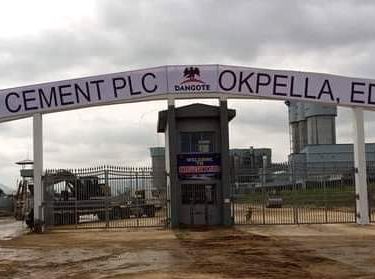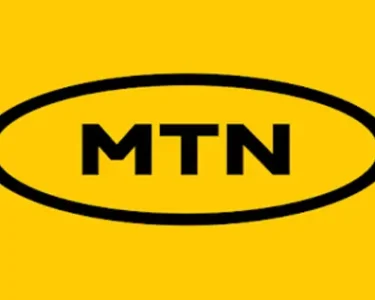American Tower Corporation has been able to decrease on-site diesel consumption by nearly 43.5 million liters annually after making an approximately $300 million investment in GHG emissions and energy reduction initiatives in Africa since 2018.
This was revealed in its 2022 sustainability report, which outlined the Company’s sustainability strategy and provides a comprehensive overview of the progress made across the three pillars of its program—Environment, Social and Governance.
In 2022, American Tower demonstrated its commitment and progress by decreasing direct emissions by 11.0%. In Africa, the GHG emissions intensity per tower decreased by 21% against our 2019 baseline, in large part due to our increased deployment of on-site solar power. Renewable energy source hours, or the number of hours the site energy load utilized on-site solar, have nearly doubled since 2019. Consequently, the hour run time for power sourced by diesel generators has been reduced by approximately half.
Through an approximately $300 million investment in GHG emissions and energy reduction initiatives in Africa since 2018, we estimate that on-site diesel consumption has decreased by nearly 43.5 million liters annually when compared to business-as-usual operations, which equates to roughly 117,000 MTCO2e (Metric tons of carbon dioxide equivalent) avoided.
Marek Busfy, American Tower Africa CEO pointed out that “As a global leader in digital infrastructure, we are very much commited to reducing the GHG emissions associated with our business. Our efforts as geared to make an impact in our continent and allow us to demonstrate our reduction progress, regardless of our significant organic growth, particularly here, where connectivity is increasingly vital but power availability and reliability are recurrently uncertain”.
To drive strategy and facilitate measurable progress, American Tower adopted science based GHG emissions reduction goals, approved by the SBTi (Science Based Targets initiative), and with this effort, the company seeks to reduce its absolute scope 1, 2 and 3 GHG emissions by 40% by 2035 against a 2019 baseline.
Decarbonizing Telecommunications in Africa Through Green Sites in 2022,
American Tower announced a transformational partnership with Airtel in Africa, which will allow both companies to advance mutual GHG emissions reduction commitments through the establishment of the Green Sites program.
Per this agreement, all newly developed sites for Airtel will meet American Tower’s Green Site specifications, which require the site to generate less than four MTCO2e per year. This will equate to an approximate 95% reduction in emissions relative to an off-grid site with a similar energy load.
To achieve this reduction, sites in the Green Sites program have a much higher solar panel count coupled with LIBs. The partnership also includes a commitment to collaborate and convert existing communications sites to meet American Tower’s Green Site specifications over time.
“As we expand digital reach on the African continent, we remain committed to reducing GHG emissions in tandem with our growth. Over the past several years, American Tower has made forward-thinking investments to ensure we achieve tangible reductions in our on-site fossil fuel consumption in Africa.” – Pieter Van Der Westhuizen, American Tower Chief Technology Officer in Africa.
Africa pilots a global energy efficiency program
In 2021, 80 sites in Africa piloted a cloud based Energy Management Systems (EMS) program. Given the success of that program, in 2022, other markets began using the software.
American Tower Africa CEO, Marek Busfy stated that “Improving energy efficiency at our sites is part of what we want to accomplish in Africa and it is critical to achieving our Science Based Targets”.
American Tower, use EMSs to better monitor and manage its energy consumption, facilitating improvements in energy efficiency. These systems consist of computer-aided tools, such as remote monitoring, and allow the company to regularly review energy consumption, identify inefficiencies and quickly remediate issues as they arise.
American Tower strategically implement and operate EMSs in several markets with the highest energy use—U.S., Spain, India and across Africa—which represent approximately 99% of its total operational energy usage.
Improvement in energy management can be seen through the pilot program in Africa, which leverages artificial intelligence (AI). The cloud-based EMS uses predictive analytics and AI to identify abnormal events, such as solar degradation due to dirty solar modules, and optimizes solar panel angles to improve energy generation. At one site, after the implementation of the cloud-based EMS, the diesel generator run time was reduced by nearly 40%.
Africa biodiesel plans for 2023
American Tower Africa plans to substitute 30% of its diesel fuel with biodiesel in 2023. In 2022, the company´s energy team completed a successful proof of concept, which delivered an approximately 16% reduction in GHG emissions when compared to traditional diesel.
Using biodiesel, instead of traditional diesel fuel, can reduce our GHG emissions in the short term, while the company continues to invest in ways to implement renewable energy solutions at sites that depend on reliable backup power.
Busfy affirmed that “American Tower recognizes the importance of managing natural resources efficiently. Every company manager must understand that ecosystem degradation and biodiversity loss are two of the most critical challenges facing the world today. We have to make a positive impact in the communities where we operate”.
As of 2022, over 45% of sites in American Tower portfolio— more than 100,000 sites—have achieved ISO 14001 certification, and the company is working to increase this, with additional markets in Africa and Latin America pursuing certification by 2025.
Waste Management
American Tower also focuses on limiting waste generation and diverting unavoidable waste from landfills throughout each phase of its communications sites’ lifecycle.
ATC Nigeria has implemented a comprehensive spill prevention and response procedure that requires spill response kits to be available in all diesel supply trucks. The team’s compliance policy also requires that, within 24 hours of an incident, the cause of the spill is evaluated and corrective actions to prevent future incidents are identified.
There is a similar process in the U.S. and other markets, which involves annual training for field personnel to ensure incidents are properly remedied and reported. In ATC Kenya, relevant employees completed a robust training program on hazardous materials classifications, associated health hazards, and proper handling and control of hazardous materials and wastes.
Digital Communities
In 2022, the Company’s disbursements and support totaled more than $3.5 million through the American Tower Foundation, our workplace giving and matching program, regional philanthropic programs, disaster-relief donations and other financial contributions.
American Tower Digital Communities (DCs) program, implemented through the Foundation, runs more than 120 DCs in Africa, helping bridge the gap to more than 500.000 beneficiaries around the globe.
In rural communities in Africa, which typically lack the infrastructure needed to support connectivity, our employees in partnership with our customers developed telecommunications networks that have achieved a nearly carbon-neutral operational footprint. These networks are designed to withstand challenging rural environments and provide consistent coverage to their communities.



